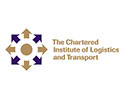Search
Business Administration BBA (Hons)
Study level: Undergraduate
This course focuses on the application of theory to real business situations, allowing you to explore contemporary business thought and practice, and develop an all-round business skillset.
Course features
Year of entry
Location
Coventry University (Coventry)
Study mode
Full-time
Sandwich
Duration
3 years full-time
4 years sandwich
Condensed first year available
Course code
N250
Start date
January 2026 - condensed
Course overview
This Bachelor of Business Administration (BBA) course aims to deliver teaching and learning which is active, applied, social and inclusive in approach. Modules are global in nature and make use of case studies that broaden your understanding of the theoretical and practical aspects of business administration.
The January start for this course is condensed in Year 1. Please see the ‘How you’ll learn’ section below for more details.
Rated Gold Overall
Teaching Excellence Framework (TEF) 20235 QS Stars for Teaching and Facilities
QS Stars University RatingsTop 5 Student City in England (Coventry)
QS Best Student Cities Index 2026Why you should study this course
This course offers you the opportunity to:
- develop a solid foundation in all the key components of business administration, management, and organisation within a global context
- explore and enhance your understanding of the key functional aspects of business administration, including accounting, people management, data analytics, marketing, project management, and strategic planning
- study supply chain management in a global context; thus, gaining relevant knowledge and skills, and consequently enhancing your employability
- learn from experienced professionals about cutting-edge business technologies and practices2
- explore a range of relevant and contemporary business concepts and technologies, such as Disruptive Technologies, Data Analytics, Ideation and Entrepreneurship.
If you choose to start this course in January you will study exactly the same course but over a slightly shorter timescale in Year 1. This is ideal if you missed the September start, want to transfer from a different university or course or just need a bit more time to prepare for life at university.
Accreditation and professional recognition

Chartered Institute of Logistics and Transport
This course is accredited by the Chartered Institute of Logistics and Transport (CILT) for 2025-26 entry. Students graduating from CILT(UK) accredited degree programmes gain one year’s credit towards the experience requirement. Accredited sandwich degrees with an industrial placement year give two years’ credit, as does the combination of an accredited first and higher degree. To qualify for exemption, first degrees must be passed with a classification of at least second class honours.
What you'll study
We regularly review our course content, to make it relevant and current for the benefit of our students. For these reasons, course modules may be updated.
How you'll learn
We understand that everyone learns differently, so each of our courses will consist of structured teaching sessions, which may include:
- on-campus lectures, seminars, and workshops
- group work
- self-directed learning
- work placement opportunities2.
If you choose to start this course in January it will be run as a condensed programme. You’ll start your course in January and finish your first year in August. Upon successful completion of Year 1, you will progress onto Year 2 in September and then continue to start subsequent years of your course in September, completing your degree at the same time as the September starters unless you opt to do a placement year.
Teaching contact hours
As a full-time undergraduate student, you will study modules totalling 120 credits each academic year. A typical 20 credit module requires a total of 200 hours study. This is made up of teaching contact hours, guided and independent study.
Teaching hours:
Teaching hours vary each semester, year of study and due to module selection. During your first year you can expect 15-18 teaching hours each week. You will also have the option to attend optional sessions including time with a progress coach or to meet with staff for advice and feedback. As you progress through your studies, teaching hours may reduce.
Guided and independent study:
Throughout your studies, you will be expected to spend time in guided and independent study to make up the required study hours per module. You'll be digging deeper into topics, review what you've learnt and complete assignments. This can be completed around your personal commitments. As you progress through your studies, you'll spend more time in independent study.
Online learning:
As an innovative university, we use different teaching methods including online tools and emerging technologies. So, some of your teaching hours and assessments may be delivered online.
Assessment
This course will be assessed using a variety of methods which will vary depending upon the module.
Assessment methods may include:
- phase tests
- essays
- group work
- presentations
- reports
- projects
- coursework
- exams
- individual assignments.
The Coventry University Group assessment strategy ensures that our courses are fairly assessed and allows us to monitor student progression towards achieving the intended learning outcomes.
International experience opportunities
This course offers several field trip opportunities2, both in the UK and abroad. These trips are designed to provide opportunities to understand business within different cultural environments and the chance to develop networks with a wider range of students and organisations. Past trips have been to destinations such as New York, Peru, China and Belgium.
Please note that all international experience opportunities may be subject to additional costs, competitive application, availability, and meeting applicable visa and travel requirements, and are therefore not guaranteed2.
Entry requirements
Typical entry requirements:
Fees and funding
| Student | Full-time | Part-time |
|---|---|---|
| UK, Ireland*, Channel Islands or Isle of Man | £9,535 per year | Not available |
| EU | £9,535 per year with EU Support Bursary** £16,800 per year without EU Support Bursary** |
Not available |
| International | £16,800 per year | Not available |
If you choose to study this course with a professional placement2 or study abroad year, you will need to pay a tuition fee3 to cover your academic support throughout your placement year. Students commencing their professional placement in the academic year 2027/28 will pay £1,500 if they are paying UK fees, or £1,800 if they are paying international fees.
For advice and guidance on tuition fees and student loans visit our Undergraduate Finance page and see The University’s Tuition Fee and Refund Terms and Conditions.
The University will charge the tuition fees that are stated in the above table for the first Academic Year of study. The University will review tuition fees each year. For UK (home) students, if Parliament permits an increase in tuition fees, the university may increase fees for each subsequent year of study in line with any such changes. Note that any increase is expected to be in line with inflation.
If you choose to study this course with a professional placement, the University will charge the tuition fees stated above for those on a placement during Academic Year 2027/28. The University will review professional placement tuition fees each year. For UK (home) students, the University may increase fees for each subsequent year of study, but such that it will be no more than 5% above inflation.
For international students, we may increase fees each year, but such increases will be no more than 5% above inflation. If you defer your course start date or have to extend your studies beyond the normal duration of the course (e.g. to repeat a year or resit examinations) the University reserves the right to charge you fees at a higher rate and/or in accordance with any legislative changes during the additional period of study.
We offer a range of International scholarships to students all over the world. For more information, visit our International Scholarships page.
Tuition fees cover the cost of your teaching, assessments, facilities and support services. There may be additional costs not covered by this fee such as accommodation and living costs, recommended reading books, stationery, printing and re-assessments should you need them. Find out what's included in your tuition costs.
The following are additional costs not included in the tuition fees:
- Any optional overseas field trips or visits: £400+ per trip.
- Any costs associated with securing, attending or completing a placement (whether in the UK or abroad).
Condensed course – January start date
If you choose to start this course in January please make sure you check the Fees and Finance page for more information. Although starting this course in January does not prohibit you from being eligible for student finance, the way it is paid in your first year differs from those who start their course in September.
If you start the course in January, your tuition fees will be paid in accordance with the university’s Tuition Fees, Refund and Withdrawal Terms and Conditions for January starters and for any further years of study, your fees will be paid in accordance with the terms for September starters.
*Irish student fees
The rights of Irish residents to study in the UK are preserved under the Common Travel Area arrangement. If you are an Irish student and meet the residency criteria, you can study in England, pay the same level of tuition fees as English students and utilise the Tuition Fee Loan.
**EU Support Bursary
Following the UK's exit from the European Union, we are offering financial support to all eligible EU students who wish to study an undergraduate or a postgraduate degree with us full-time. This bursary will be used to offset the cost of your tuition fees to bring them in line with that of UK students. Students studying a degree with a foundation year with us are not eligible for the bursary.
Facilities
Our facilities and technology aim to closely replicate what you would expect in real-world business environments4.
When studying the Business Administration course, you could have access to our Trading Floor, one of the largest of its kind in Europe, our Business Simulation Suite, which facilitates strategic problem-solving in life-like simulated business environments, and our DigiComm Lab, which recreates the atmosphere of working for a contemporary marketing agency4.
Facilities are subject to availability. Access to some facilities (including some teaching and learning spaces) may vary from those advertised and/or may have reduced availability or restrictions where the university is following public authority guidance, decisions or orders.

Business Simulation Suite
Coventry Business School's Business Simulation Suite utilises the latest business simulation software to give students the opportunity to improve their business skills.

DigiComm Lab
Designed to build creative minds, the DigiComm Lab is equipped with the latest industry-standard marketing and advertising software and devices to support your creative development.

Trading Floor
Students have opportunities to practice simulated trading and other finance-related activities using the various types of demo software available in the Trading Floor.
Careers and opportunities
Extensive support is in place from the Talent Team for students wanting to undertake a work placement as part of their degree and in finding suitable graduate-level jobs upon completion2.
Upon successful completion of this course, you will be knowledgeable in business administration, management, and organisation. You will also have relevant knowledge about business analytics and decision-making, entrepreneurship, ideation, project management, and supply chain. You should also have acquired the requisite people, marketing, and project management skills.
This valuable and contemporary business knowledge and skills are expected:
- to increase your employability by preparing you for a wide range of potential future career options in the competitive local, national, or international business environment.
- enable you to set up and run your personal or family business.
- pave the way for you to pursue higher education, e.g. an MBA if you choose.
Where our graduates work
Past graduates have gone on to work at organisations such as Ark Housing Consultancy in London, Innocent Drinks in London, Smart Assessor in Rugby, Healthcare Quality Improvement Partnership in London, PLP Lift Trucks in Sheffield and Fastenal in Coventry.
Further study
You can choose to continue your studies at Coventry University. You may be entitled to an alumni discount on your fees if you decide to extend your time with us by progressing from undergraduate to postgraduate study.

Discover Phoenix+
Phoenix+ brings you together with other students to learn, experience and develop essential knowledge and skills. Whatever destination you choose, it's about preparing you for life after university.
Learn more about Phoenix+How to apply
You may also like

Business Management BA (Hons)

Business and Marketing BA (Hons)






